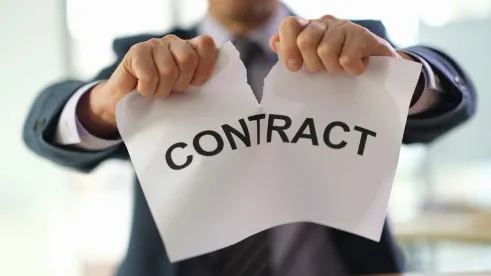You’re in the middle of a job and the party with whom you have a contract breaks a material term of the agreement. What does the law allow you to recover? The answer is found in the law of damages. While the law of damages can vary, some general principles typically apply in most jurisdictions in the United States. Here are those principles:
- A basic measure of damages is that amount of money that would put the non-breaching party in the same position – no better, no worse – that they would have occupied had the other party not breached. This is referred to as giving the non-breaching party their “expectation damages” or the “benefit of the bargain.”
- The non-breaching party may be entitled to recover costs that were the natural and foreseeable consequence of the breach. Common types of damages include unpaid balances, interest, costs to investigate and repair defective work, costs to hire another contractor to finish the job, increased overhead costs, and lost profits, among others. Attorneys’ fees are generally not recoverable under the so-called American Rule.
- Costs that have already been incurred, as well as anticipated costs not yet incurred, may be recoverable.
- Damages cannot be based on speculation or guesswork but must have some reasonable basis in fact.
- The non-breaching party cannot recover damages that could have been avoided by reasonable efforts. This is known as the duty to mitigate damages.
- Parties may contractually agree to change the default rules found in the law of damages. For example, the parties may agree that lost profits are not recoverable, they may agree that the prevailing party in a dispute is entitled to recover their attorneys’ fees, or they may agree to a predetermined amount of damages (i.e., liquidated damages) so long as the agreed amount is reasonably related to the actual damages.
The law of damages can be incredibly complex. There are state-specific cases and laws that are highly nuanced and deal with almost every situation. Sometimes the cases and laws are unclear or in conflict. Proving up damages at trial may involve months of expert analysis and testimony. With that necessary disclaimer said, the above principles apply many jurisdictions and will likely inform what a court says a breaching party should pay. Keep them in mind next time you are faced with or are asserting such a claim.




 />i
/>i
